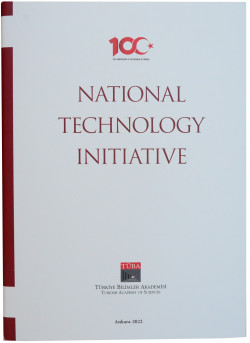On the Road to a Fully Independent and Prosperous Türkiye the Case of Baykar

On the Road to a Fully Independent and Prosperous Türkiye the Case of Baykar
Turkish society has sought to become a contemporary civilization for centuries, from the Ottoman Empire to the Republic days. It has been understood that, to achieve this goal, it is a prior necessity to become advanced in defense and technical fields. However, international, and domestic obstacles have made it difficult to achieve this goal. In particular, the unbudging mentality that accepted surrender within the domestic realm, stood against the breakthroughs that were trying to be achieved. Therefore, a clear and holistic change of opinion had to be put forward. The trigger for this change was Cyprus Peace Operation. In 1974, Türkiye experienced an important paradigm shift in technology development thinking. The National Technology Initiative, which has become a tangible target today, was initiated for a fully independent Türkiye and foundation companies such as Aselsan, which would operate in the field of defense, were established. It had also been understood that Türkiye’s goal for full independence was possible with developing a high technology national defense industry. Eventually, the defense industry would act as a locomotive in Türkiye’s development. The transition of defense expenditures from imports to Research and Developments and subsequently to the defense industry infrastructure would also support economic growth. Technological progress in the defense industry has also positively affected civilian use. Positive feedback had begun to be received, too. On the other hand, in the defense field, the export-import balance has changed in favor of exports. Unmanned aerial vehicle development studies, which started with the ideals of creating a spark effect in the early 2000s (H. Bayraktar and Bayraktar, 2004), have become a symbol for Türkiye. Armed / Unmanned Aerial Vehicles (A/UAVs) developed nationally and indigenously by Baykar achieved a significant export success. Acting as game-changing force in the operations in which they are used, these tools have led to a different perspective and transformation in combat doctrines (Nast, 2022). With the Native and Indigenous Manufacturing Model created by Baykar within the scope of National Technology Initiative, the R&D studies carried out in the field together with the security forces made it possible to develop high-tech, effective and up-to-date products in a short time period. While counterterrorism efforts came almost to an end in the domestic realm, Türkiye’s struggle against terrorism on abroad had transformed into a new level. In addition, Bayraktar TB2 UAVs continue to be actively used in humanitarian missions such as in natural disasters. The development and production activities are carried out within the scope of national and indigenous development model, starting with the smallest class Bayraktar Mini Unmanned Aerial Vehicles, continuing with Bayraktar TB2 UAV, Bayraktar Akıncı Unmanned Combat Aerial Vehicle (UCAV), and further with the new generation Bayraktar TB3 UAV and Bayraktar Kızılelma Unmanned Combat Aerial System (UCAS).
